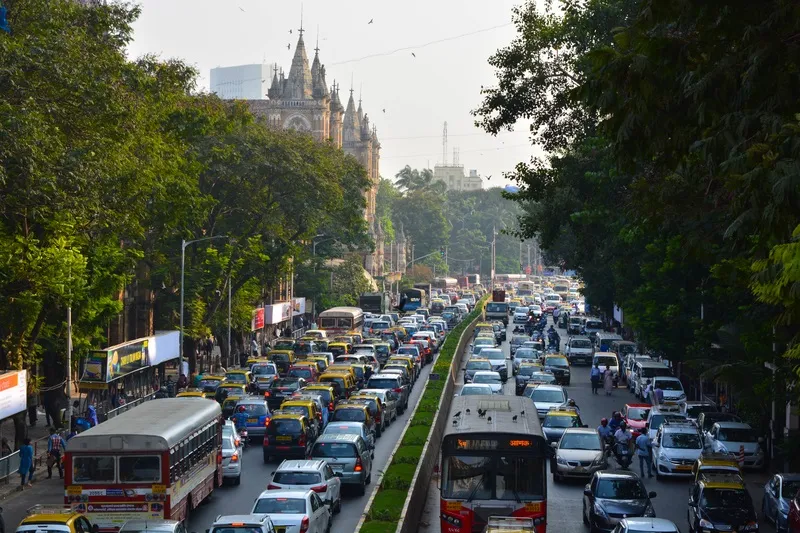The UK’s independent road safety charity IAM RoadSmart has expressed disappointment in yet another year of no significant change in the levels of drink-driving in Britain, based on new Government statistics just announced.
The Department for Transport announced that provisional estimates for 2015 show 220 deaths in alcohol related crashes. Some 1,380 people were killed or seriously injured when at least one driver was over the limit. This represents a statistically significant rise from 1,310 in 2014. In
February 3, 2017
Read time: 3 mins
The UK’s independent road safety charity IAM RoadSmart has expressed disappointment in yet another year of no significant change in the levels of drink-driving in Britain, based on new Government statistics just announced.
The1837 Department for Transport announced that provisional estimates for 2015 show 220 deaths in alcohol related crashes. Some 1,380 people were killed or seriously injured when at least one driver was over the limit. This represents a statistically significant rise from 1,310 in 2014. In addition, the total number of collisions and accidents where at least one driver was over the alcohol limit rose by two per cent to 5,740 in 2015.
Neil Greig, IAM RoadSmart director of policy and research, said that the continued lack of progress in reducing these figures had gone on for too long and was still too high – 13 per cent, or around one in seven of all fatal crashes involved alcohol in 2015.
He added: “The increase in serious injury crashes and the overall increase in drink related crashes is worrying and suggests the problem is not reducing among a hard core of drivers willing to take the risk.
He called on the government to introduce a lower drink-driving limit in England and Wales, saying it wouldn’t eradicate the problem completely but would deliver a small but significant decrease in drink drive casualties and underline the clear message that driving and drinking don’t mix.
Asked by ITS International whether, in the light of these drink drive figures (and indeed the drug driving), IAM RoadSmart should consider campaigning for alcohol interlocks as used in other countries, Greig said: “At IAM RoadSmart we would welcome a large scale trial of alcolocks as a sentencing option for individuals with particular drink related problems. This would allow a more tailored approach to solving each driver’s alcohol issues. Research we have seen does indicate that this combination approach – rehabilitation courses plus alcolocks plus enforcement/education is more successful. We can also see a good case for a pilot study focussed on the drivers of large HGVs, tankers and buses.
“Currently we don’t support the compulsory fitment of alcolocks for all drivers in the UK or in new cars. This would add to cost and have little impact for the vast majority of drivers who never drink and drive. However a really good UK based research project would certainly help to inform the debate in this country.”
Greig added: “The only way to catch those who ignore the limit is through intelligence led high profile policing so investment in roads policing must be protected.” He continued: “Drivers who take a drink-drive rehabilitation course do appear to be less likely to reoffend. Currently a convicted drink-driver has to choose to take a course if offered. At IAM RoadSmart we believe a more effective option would be to make the course compulsory and force drivers to opt out only if they choose to.”
The
Neil Greig, IAM RoadSmart director of policy and research, said that the continued lack of progress in reducing these figures had gone on for too long and was still too high – 13 per cent, or around one in seven of all fatal crashes involved alcohol in 2015.
He added: “The increase in serious injury crashes and the overall increase in drink related crashes is worrying and suggests the problem is not reducing among a hard core of drivers willing to take the risk.
He called on the government to introduce a lower drink-driving limit in England and Wales, saying it wouldn’t eradicate the problem completely but would deliver a small but significant decrease in drink drive casualties and underline the clear message that driving and drinking don’t mix.
Asked by ITS International whether, in the light of these drink drive figures (and indeed the drug driving), IAM RoadSmart should consider campaigning for alcohol interlocks as used in other countries, Greig said: “At IAM RoadSmart we would welcome a large scale trial of alcolocks as a sentencing option for individuals with particular drink related problems. This would allow a more tailored approach to solving each driver’s alcohol issues. Research we have seen does indicate that this combination approach – rehabilitation courses plus alcolocks plus enforcement/education is more successful. We can also see a good case for a pilot study focussed on the drivers of large HGVs, tankers and buses.
“Currently we don’t support the compulsory fitment of alcolocks for all drivers in the UK or in new cars. This would add to cost and have little impact for the vast majority of drivers who never drink and drive. However a really good UK based research project would certainly help to inform the debate in this country.”
Greig added: “The only way to catch those who ignore the limit is through intelligence led high profile policing so investment in roads policing must be protected.” He continued: “Drivers who take a drink-drive rehabilitation course do appear to be less likely to reoffend. Currently a convicted drink-driver has to choose to take a course if offered. At IAM RoadSmart we believe a more effective option would be to make the course compulsory and force drivers to opt out only if they choose to.”








